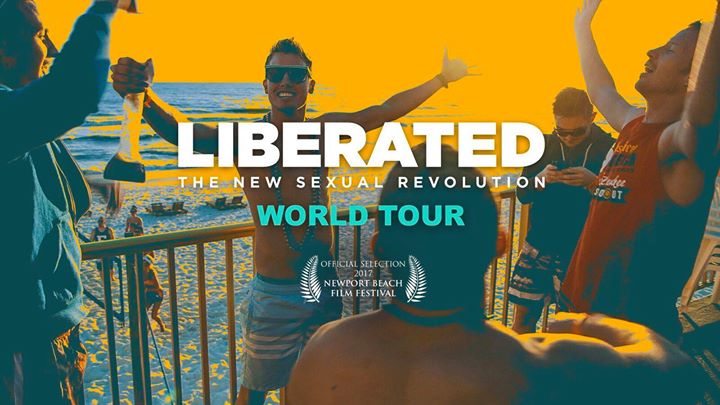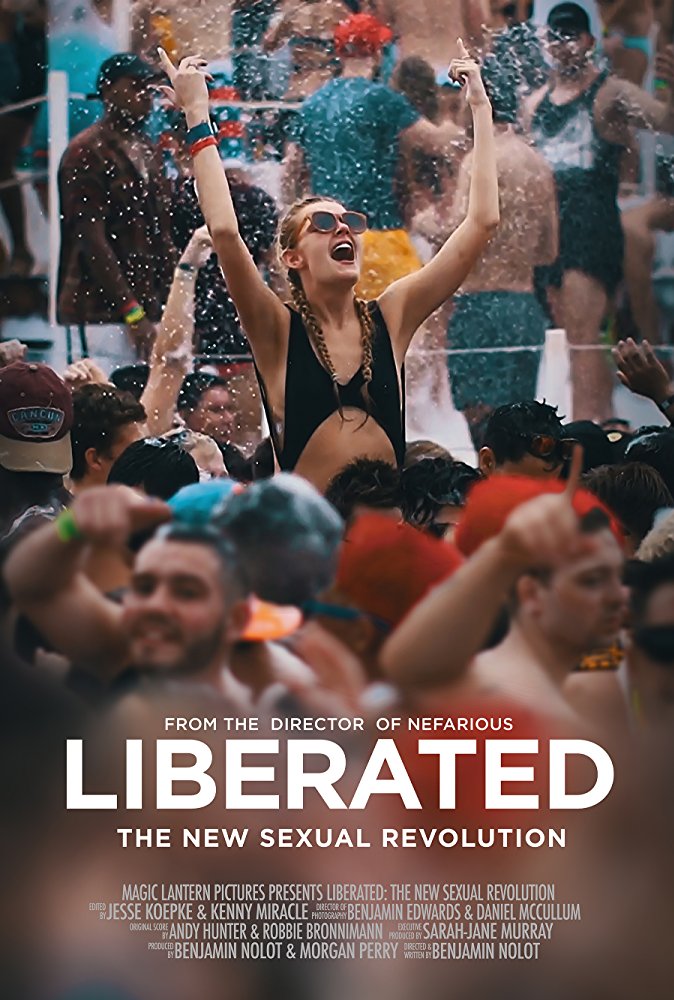
In the wake of the recent media storm associated with movements like Times Up and Me Too, there has never been a better time for anyone—from filmmakers to ordinary college students—to spark discussions about the modern-day sexual revolution’s impact on us as a society. Now available on Netflix, and making its way across the world on a Worldwide College Impact Tour, Liberated: The New Sexual Revolution is an eye-opening documentary about coming of age in today’s young adult “hookup culture.” Following the journey of college students on spring break, the film provides shocking insight into attitudes and behaviors regarding sex, the normalization of sexual violation, and the struggle against conceptions of gender and sexuality shaped by the media. We called filmmaker Benjamin Nolot and documentary subjects Shay Douglas and Kimberleigh [Kimmy] Andrews while they were promoting the film in Los Angeles, and spoke about why the film is now more timely than ever, what it teaches us about our perceptions of masculinity and femininity, and how Shay’s experience during and since production has changed his life for the better.
Hannah Loesch: Benji, obviously this film ties in perfectly with timely movements like Me Too and Times Up, but when did you first decide to make it, and how has the climate changed from the time you began working on it until now?
Benjamin Nolot: The vision for Liberated was birthed back in 2011, after we completed the documentary on global sex trafficking. We spent four years traveling the world and making that film, and after we were done with it, we were haunted by this image of men lining up to purchase women and children for sex in different places around the world. So we had this question that we were pondering: What kind of society is producing so many men willing to buy a woman or child for sex? And that question catapulted us into production on a film that we thought would be about the sexual culture in America—kind of a bigger picture snapshot of the sexual culture landscape. But when we went down to Spring Break, which we thought would just be a smaller subsection of a larger film, we ran into a situation where there were girls being sexually violated within a few days, and that was completely alarming to us. We decided to follow that story, which led us to film down there for several years. And at the culmination of it, during our last year down there, there was a girl that was gang raped on the beach, and it was at that point that we felt like we had a smoking gun on our hands, and that we really had to tell this story. And so, I’m grateful for the Me Too movement, because I feel like it has elevated our understanding of the severity of sexual violation. I think that in the past, sexual harassment has been sort of overlooked, or winked at, or laughed about—I think of a scene in a movie called Anchorman where this guy in the office gropes this girl’s breasts, and it’s supposed to be funny…
Hannah and Cailin: Right.
Benjamin: I feel like Me Too has created a moment of sobriety for our culture, so for Liberated to come out at this time, I feel like it’s helping to strengthen and empower and continue that conversation and is calling into question our way of being in a world where sexual violation is such a common experience.
Cailin Loesch: It really couldn’t have come at a more perfect time. So, Shay and Kimmy, how did you get involved with the project?
Kimberleigh Andrews [Kimmy]: I was on Spring Break for the first time when I met Kim Biddle, the founder of Saving Innocence, at one of the bars at the hotel we were staying at in Cancun. We had got to talking and I told her about the “f*** it list” that my friend and I had created that we planned to complete throughout spring break. She was very interested in that and asked if her documentary crew could follow us to document what our experience was on spring break. I had no idea that it was going to be about rape culture until our exit interview at the end.
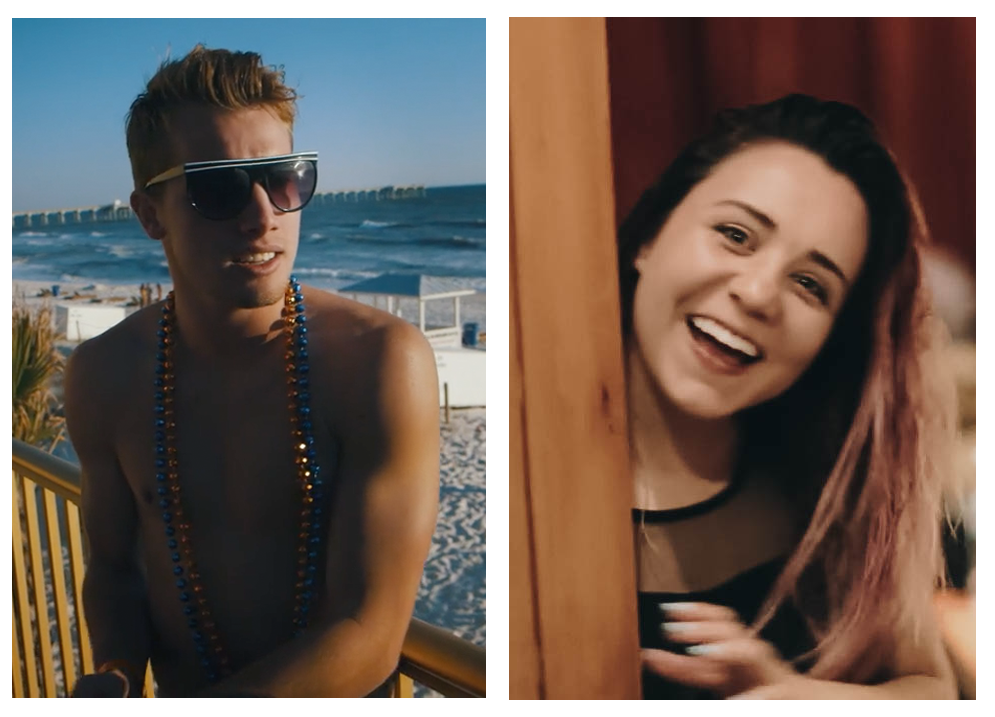
Cailin: Not knowing that it was going to be about hookup culture, what did you think the purpose of the documentary was when you first started shooting?
Kimmy: She just pretty much said that they were doing a documentary on spring break, so it wasn’t even until I saw the documentary that I realized the full extent of it. But at the exit interview, I had more of an idea of what the message of the film was going to be about.
Hannah: And Shay, what are your thoughts on why this documentary was made and what message it’s trying to get across, and why did you agree to be a part of it?
Shay Douglas: Starting with how I got involved, we were beside the pool with all my mates, and we met Benjamin, and he just wanted to interview us and get our perspective on where we were at with regards to sexuality at that time. When I look back at my experience at that time, I was so consumed about all of these external influences and under a lot of social pressures and expectations that I was expected to perform to prove myself as a man. I was expected to, you know, try and conquer all of these women as a way to validate my status amongst my peers. So under those preconceived notions, I was running around boasting and bragging about how I could sleep with all of these girls, and in an egotistical way, I wanted to prove that to the camera in a sense and play up to this role to show that I could do this. But little did I know at that time, I was obviously following the crowd and trying to be the cool guy, and wanting to gain all this validation, but I was ultimately destroying my heart, destroying my soul, and inflicting all of the people involved in that process. So now when I look back at it, it’s really difficult and challenging to face all of those issues that I was consumed by. Ultimately, I’m here to support the message of the film, to elevate these questions and this conversation about what our sexuality really means, and what it means to be a human, and how we can really reclaim our identities as human beings and step back into a more authentic and honest place, and see each other for who they really are as whole human beings…not limited to ways that we’re expected to behave or ways we’re expected to interact on a sexual level with one another based upon all of these external influences.

Cailin: So the whole thing really was an incredible learning experience for you.
Shay: Yeah, it’s been an extremely amazing learning experience. I see every day now with new opportunities to step into further growth, and learn from mistakes instead of running and hiding from them. Uncovering the pain and facing it, really, and becoming friends with it and using it as an opportunity to show people that, you know, we can all work through this together, we’ve all made mistakes, no one is perfect—it’s part of being human and identifying that and moving forward in how we can choose to engage and interact in a positive, healthy way.
Hannah: And it’s interesting, Shay, what you said about the social pressures that you felt, because several guys interviewed in the documentary said that they felt like you “earned masculinity” by hooking up with as many girls as possible…Shay, how do you think that a girl would define masculinity?
Shay: She would probably respond with, for a man to be a true man, he would be vulnerable, he would be, you know, sensitive, gentle, protective, and I think that’s what really makes up a man and that’s how he can really prove his strength as a person. Because we are designed in specific ways, to protect women, and engage empathetically with them and have intimate relationships, that’s part of being human. The way that our culture has been designed, it sort of dehumanizes those aspects of ourselves, and normalizes these abusive relationships with one another, it abuses the relationships with ourselves and our own spirits and our emotions, and it’s difficult coming of age in these days, but ultimately, for us as human beings, it’s about stepping back into our hearts and doing what feels natural to us rather than what’s normal in our culture.
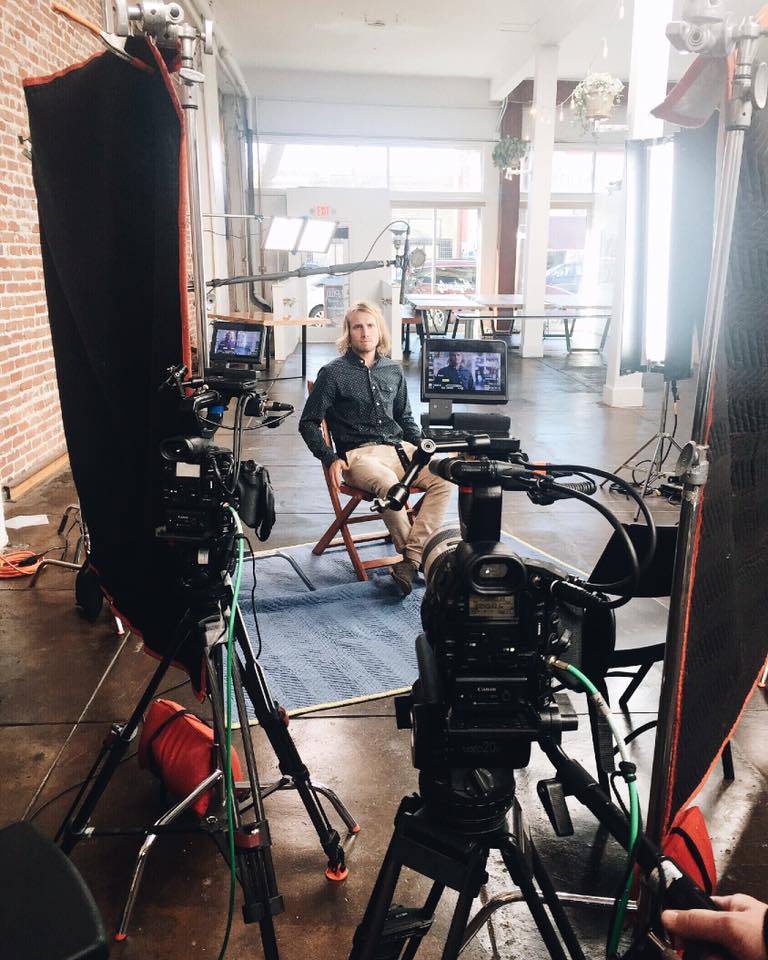
Cailin: Kimmy, how would you define masculinity?
Kimmy: I would describe masculinity the same way I would describe being a human—as doing everything you do with respect and love. If those are the qualities that are guiding you through your life and your interactions with people, then all you can ever have is successful relationships. I think that masculinity and femininity can so easily be put onto a spectrum, but I think at the end of the day, the most attractive thing about a person is their heart and genuine respect for other people.
Hannah: Benjamin, a lot of filmmakers use fictional stories to highlight real issues and topics of conversation, but as a documentary filmmaker, do you think it’s more eye-opening to your audience when they know everything that they are seeing is candid and real?
Benjamin: Yeah, I mean, for my part, documentary is a pure genre in that it’s fueled by people who are not motivated per se by money nor fame, but are more interested in having social impact and telling stories that help draw attention to really important aspects of our lives, and help take us beneath the consciousness of where we live our normal lives. So I would say that’s it’s been a privilege and an honor to be able to work on a project like this, and the feedback that we’ve gotten is that while the film is difficult to watch, it’s also had a really profound impact on the people who have seen it. I think that when you have this kind of understanding that something is being acted out, that narrative films can be powerful as well, but there’s a different level of sobriety—raw intensity—when it actually is real. So, as a documentarian, I’m a huge fan of documentaries [all laugh].
Benjamin: There’s a quote that Alfred Hitchcock said, “In narrative films, the director is God, but in documentary films, God is the director.”
“I was on Netflix with my buddies tonight, and we typed in ‘spring break’ thinking we’d find some raunchy spring break movie to watch. We ended up clicking “play” on your movie, and it had half of us guys in tears by the end of it. We were so convicted of things we’ve done and this sickening culture we’ve encouraged. It breaks my heart to really hear and understand what these girls our age are going through. I will be sharing your documentary with whoever I can. Thanks so much, I can honestly say this film changed my outlook on life.” — Email from a student to Benjamin
Cailin: Right off the bat, the documentary takes a jarring turn from showing these beautiful shots of young kids growing up and playing together on the beach, to shots of the wild students partying on spring break, declaring that they are all about focusing on drinking and having sex, and that they are the “future world leaders.” In what way did you hope that we as the viewers would connect the first series of shots with the second?
Benjamin: I just felt that our planet holds a capacity for great beauty, and great corruption, and I think that there’s something really powerful about the consciousness of a child and that uninhibited state of joyful interaction without an agenda. Your world is about exploration, it’s about friendship, and it hasn’t been polluted, for lack of a better word. So we felt that to include that level of consciousness in a film that deals with such subject matter would help create a perspective that we can weigh and consider our current lives against this more innocent period of time, and to really understand the struggle of coming of age. I think that was very personal for me, in that sense, of grappling with my own coming of age years, my own experiences as a child, and seeing how, in many ways, I felt ripped off, growing up into this culture. I think the most powerful line in the film for me was when Kimmy said, “It’s hard growing up”—with tears in her eyes—and it’s so tragic, that we’ve made our coming of age years in this culture such a perilous passage to get through, and to keep your humanity intact. So at the end of the film, we return back to that as a way of saying that our planet, and we as humans, have great capacity for beauty, and let’s recover the better angels of our nature and make this world a place that’s safe and respectful for everyone.
Cailin: It’s kind of like what Shay and Kimmy both said about who we really are at our core as humans—that’s what a child is. That’s how we start off.
Benjamin: Yeah, absolutely.
Cailin: So, Shay, I have to ask what you think about the Times Up and Me Too movements that have been so talked about in the media over the past couple of months. I’m not sure how many specifics that have come out that you’ve looked into, but in what way do you think that there’s room for change in the way that some men treat women?
Shay: Yeah, that’s a good question, and I mean, the timing of the film coming out just after these big movements have started is extremely important. But what I feel is even more important is that men realize that they have to take responsibility and ownership for what they’ve done. Apologize to those they hurt, and promise that it won’t happen again. I think that owning up to the things that you’ve done, on whatever scale it’s been—whether it was a cat call, or through grabbing and groping, or though full-blown rape—that you bring it to the surface, that you face these issues, and you apologize for them, and you make sure it doesn’t happen again. I think it’s really important that, as men, we come to the table, we are more open about the ways we have interacted with women—and whether it’s acceptable or not—and we understand how toxic those ways are, and change them.
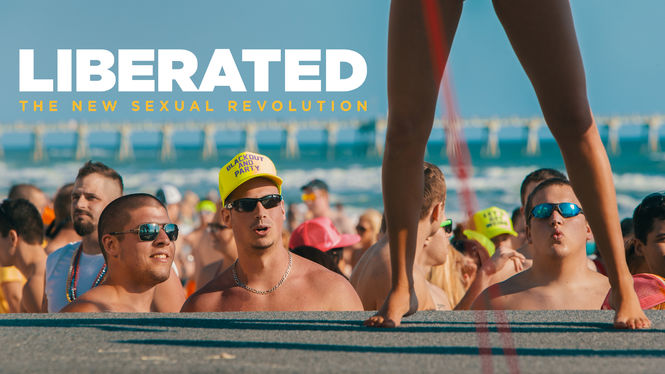
Hannah: “These days” most sex is casual, and, in the words of many of the students interviewed, “means nothing”…in all of your opinions, when did “these days” start, and what started it?
Shay: I think it’s important that, when I look back on my experience in that time period, I had this mindset that sex was meaningless, or sex was always casual, and it sort of becomes transactional in that sense. I think the shift has to happen to view sex as something that is inherently magical and mystical and powerful, we have to sort of change our view on that because sex is one of those experiences that we are made for—it’s life-giving—and it’s one that happens at an intimate level between two human beings and we should really respect that interaction rather than see it as something that is casual and something that has no meaning. It completely devalues and degrades the whole experience of it. So to have reverence for it and to ultimately respect that interaction is important in the change of mindset.
Hannah: At the end of the film, an incident that took place on the beach a month after filming was described in which a victim was gang raped by two men, who were eventually sentenced to ten years in jail for sexual assault. But this isn’t just something that happens on spring break: one in five women is sexually assaulted while in college, according to the White House Council on Women and Girls. Benjamin, would you say that your hope for the film is more to get us to take a harder look at the consequences of hookup culture, or is it more just to say, “This is how things are now”?
Benjamin: I refer back to that Alfred Hitchcock quote, “In narrative films, the director is God, but in documentary films, God is the director.” I think that in that way, there’s almost a providential element to documentary filmmaking where you begin with an idea but then you’re really following a journey and a story that is on a path, and I think that my role as a filmmaker is to sort of give reverence to that story and to serve that story, and to help it find its shape and form. This was not a top-down endeavor where we thought, “We’re going to prove that rape culture exists by going to Spring Break!” It was more something that we discovered over the course of our journey. We felt that this issue was so important, that in the final crafting of the film it actually took a long time to buy into this idea that this was going to be a documentary about spring break; I really resisted that up until 2016, you know! [All laugh] So, it was really a matter of letting this story be what it is, and I think that the story that wanted to find its way and get out into the world is this one, sounding an alarm about the way that we view and treat women, the issue of men’s entitlement to women’s bodies, and the way they are expected to go along with being groped and violated in any number of ways.
Hannah: Shay and Kimmy, some girls in the documentary say that love doesn’t exist. Do you think it does?
Kimmy: [laughs] Yes. I do. I think that growing up, we’ve been told a lot of contradicting stories about what love really means, and I can’t speak for the women who said that, but the only thing I can say about that is that there is probably something in her life that made her give up on the idea that it’s real. Because love exists outside of strictly a sexual relationship—it exists in friends and family, in passions and things that you appreciate—so I do believe that love is real. I think sex can be an extension of that, but everyone has a path and everyone has history, and with all the things that we’ve seen in the documentary and in everyday life, it’s not hard to imagine what heartbreaking thing could have happened to make someone say that.
Shay: I think our view has been so distorted on what love really is, and going off of what Kimmy said, I think that love is an intangible, universal, extremely powerful notion of giving yourself to someone unconditionally with compassion without expecting anything in return. It has to exist, because it’s in the nature of every single one of us. Going back to the film, there’s the segment in the beginning with the young children, and they are the embodiment of love because they just do and give and are who they are, from a place that’s within their hearts. And ultimately, for us as adults, it’s going back to learning from these children and doing what’s inherently natural for us and tuning into our own hearts to give from a place of authenticity.
You can watch Liberated: The New Sexual Revolution now on Netflix. For information on the Liberated World Tour, visit www.magiclanternpictures.org.
